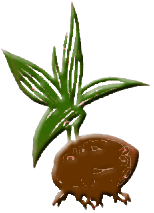|
| |
|
Timoci Uluivunda Bavadra (1934-1989)
|
|
Timoci Uluivuda Bavadra of Viseisei, Vuda, was the traditional
head of i tokatoka Werecakaca from the chiefly yavusa (clan) if Sabutoyatoya,
Vuda. He is survived by his widow, Adi Kuni Vuikaba; children Jona Tavai,
Lusiana Ratu, Unisi Telei, Ilaisa Veidreyaki, Turuva Vatilai, Makereta Naio,
Joana Waranasau, Tupou Draunidalo, Sireli Draunidalo, Apolosi Ranawai, Timoci
Uluivuda, Kelera Natoba, Jona Yabayaba; and Akisi Adivulo and Sera Ranawai.
|
|
|
|
Education and medical career
|
|
September 22, 1934 |
Born at Namoi, Lautoka |
|
1941 - 1948 |
Primary education |
|
1949 - 1954 |
Secondary education at Queen Victoria School |
|
1955 - 1960 |
Medical education at the Fiji School of
Medicine, Suva, followed by a year of internship at the Lautoka Hospital |
|
1961 - October 1976 |
Field service medical in Serua, Lautoka,
Vatukoula, Lakeba (Lau) and Rewa |
|
1966 - 1968 |
Overseas medical services secondment in
British Solomon Islands Protectorate |
|
1969 |
Diploma in Public Health, University of Otago,
New Zealand |
|
1972 - 1984 |
Author of numerous research papers on
subjects including family planning and maternal mortality |
|
1975 - 1985 |
Executive Member of the Fiji Medical
Association |
|
1976 - 1980 |
Family Health Officer, Ministry of Health
Suva |
|
1981 - 1985 |
Assistant Director of Primary and Preventive
Health
Services |
|
1981 - 1985 |
Chairman, Fiji National Food and Nutrition
Committee |
|
|
|
|
Trade Union and Political Career
|
|
1978 - 1985 |
President of the Fiji Public Servants
Association (PFSA) |
|
July, 1985 |
Elected President of the newly formed Fiji
Labour Party. Retired from Fiji Public Service in order to take this
position. |
|
November 28, 1986 |
Appointed Leader of the Labour Party and
National Federation Party Coalition |
|
April 13, 1978 |
Sworn in as Prime Minister of Fiji and
Minister responsible for Public Service, Fijian Affairs following an
historic victory at the 1987 general elections. |
|
May 14, 1987 |
Deposed as Prime Minister by the Royal Fiji
Military Forces. Incarcerated along with members of his government for 7
days. Release after Parliament is unlikely dissolved by the Governor
General, Ratu Sir Penaia Ganilau. A Council of Advisors, whose members are
almost exclusively Alliance or Taukei Movement members or supporters is
appointed by the Governor General. |
|
June 1987 |
The struggle for the restoration of democracy
in Fiji begins with a delegation to London. Discussions are held with Sir
William Heseltine, the Queen's Private Secretary, and the Commonwealth
Secretary General, Sir Shirdath Ramphal. The visit is followed over the
course of the next two years by meetings with heads of governments, trade
unions, and political leaders from countries as far flung as Australia,
New Zealand, India, the United States, Canada, Papua New Guinea and New
Caledonia. The meetings are aimed at seeking support for the restoration
of constitutional government and democracy. |
|
September 1987 |
Bavadra leads a delegation of his deposed
colleagues in discussions with the defeated Alliance Party headed by Ratu
Sir Kamisese Mara. A political solution is found in the Deuba Accord.
Signed on September 23, 1987, it is based on an agreement between the
deposed government and the Alliance to share power. |
|
September 25 1987 |
A second military coup takes place. Bavadra
along with many of his colleagues and sympathisers are again arrested and
held in detention at the Naboro Prison about 30 kilometres from Suva. |
|
March 23 1988 |
Bavadra is elected the founding President of
the South Pacific Progressive Parties Association, a Pacific-wide body of
progressive movements. |
|
March, 1988 |
Bavadra is required to undergo medical
treatment
including an operation on his back in Auckland, New Zealand. Cancer is
diagnosed. |
|
September - October 1989 |
Further medical treatment including surgery
is required
Confined to a wheel chair, he returns home to Fiji on October 31, 1989,
pleading to continue the struggle. |
|
November 3 - 8, 1989 |
Bavadra dies suddenly on November 3, and
funeral five days later is attended by some 60,000 people.
On November 8, a country-wide closure of schools, commercial and other
activities occurs spontaneously as a mark of respect. The late Prime
Minister is laid to rest in the chiefly burial ground in the centre of his
home village of Viseisei. |
|
|
|
|
Sporting Achievements
|
|
|
Bavadra was keen sportsman and he excelled in rugby, cricket
and athletics. He was a sprint champion at secondary and medical schools; a
rugby trialist for an Australian tour in 1961; and as an accomplished cricketer,
was a member of the Fiji Cricket Association Executive. He also played
competitive tennis and golf.
|
|
|
|
|
